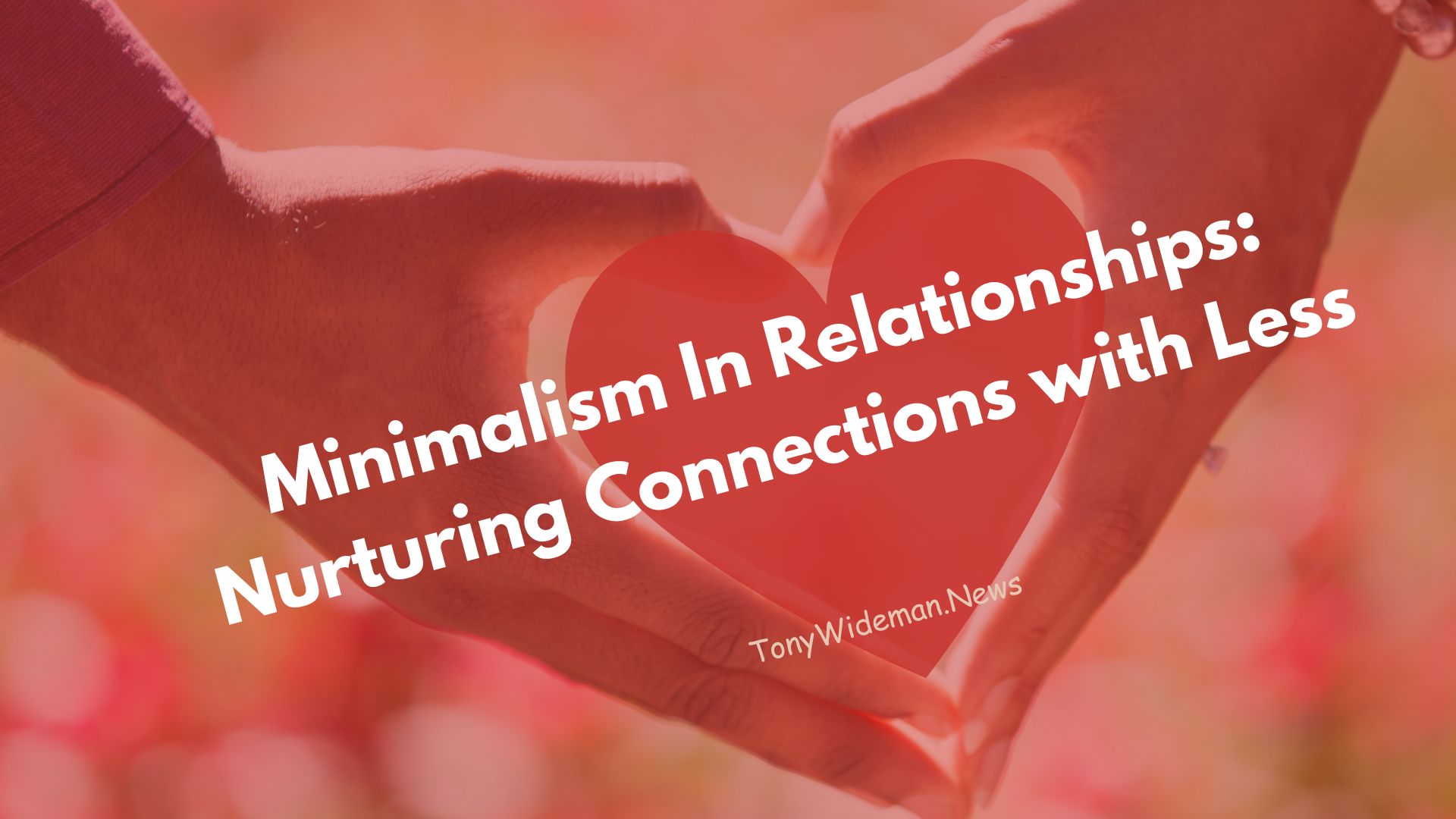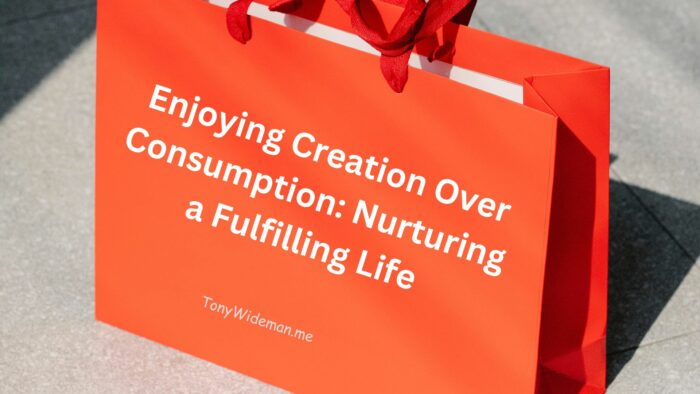The Benefits Of Simple Pleasures In A Complex World

Mindfulness isn’t just a buzzword; it’s a game-changer, especially in our fast-paced world. When you think of mindfulness, picture it as the art of paying attention to the present moment without judgment. It’s about savoring the here and now, whether sipping your morning coffee or walking in the park.
So, how do you pull this off in your daily life? Start simple.
Focus on your breath for a few minutes each day. Notice how it feels to inhale and exhale. You can also practice mindfulness when eating. Savor the flavors, textures, and aromas of your food. It might seem small, but these practices can ground you and offer a refreshing break from constant mental chatter.
You might wonder, what’s the big deal about being present?
Well, it’s got some serious perks. Mindfulness reduces stress, improves emotional health, and boosts your overall well-being. A study from Harvard even found that people who practice mindfulness have lower risks of chronic health issues like heart disease. Think of it as a mental workout that keeps your mind sharp and your body resilient.
Let’s get real. Practicing mindfulness can be a game-changer. Take it from Jane, a busy mom of three. She found that spending just ten minutes daily on mindful breathing made her more patient and less overwhelmed. Alex, an executive, uses mindful walking to clear his head and enhance his focus. Real-life transformations like these show the tangible benefits of mindfulness.
Finding Joy in Routine: The Benefits of Simple Pleasures
The benefits of simple pleasures often go unnoticed in our hectic lives, yet they hold the key to genuine happiness.
Think about the joy in a hot cup of coffee on a chilly morning or the sun’s warmth on your face during a lunchtime walk. These moments, though small, have a significant impact.
Identifying these pleasures starts with paying attention to your daily routine. Notice the activities that make you smile and feel good. For example, maybe you read a book before bed or play with your pet after work. These simple acts can transform ordinary days into meaningful experiences.
Gratitude plays a crucial role here. By acknowledging and appreciating these small joys, you amplify their positive effects. Keep a gratitude journal where you jot down daily things that make you happy. Over time, you’ll see a pattern of simple pleasures that contribute to your well-being.
Balancing life’s demands while appreciating the benefits of simple pleasures requires a bit of finesse. Getting caught up in the hustle is easy, but taking short breaks to enjoy these moments can recharge your spirit. Whether it’s five minutes of stretching or a brief pause to enjoy nature, these breaks can make a difference.
Cultivating Contentment: Strategies for Lasting Well-being
Contentment is the feeling of satisfaction and happiness with what you have. It goes beyond fleeting happiness and into a more profound sense of well-being. While happiness can be momentary, contentment provides a steady sense of peace.
One way to foster contentment is by practicing self-compassion. It’s about being kind to yourself, especially during tough times. Instead of being overly critical, give yourself the same empathy you’d offer a friend. This mindset shift can significantly boost your inner peace.
Another powerful strategy is simplifying your life. Declutter your physical and mental space to focus on what truly matters. Prioritize activities and relationships that bring you joy, and let go of things that drain your energy. This approach can create more room for contentment to flourish.
Connecting the benefits of simple pleasures with long-term well-being is a game-changer. You build a strong foundation for lasting happiness by consistently savoring small moments. Think of it as investing in your emotional bank account. Each simple pleasure adds up, creating a reservoir of positive feelings you can draw from during challenging times.
Experts back this up. Research shows that people who regularly appreciate the benefits of simple pleasures report higher levels of life satisfaction. They experience less stress and enjoy better relationships. It’s not about chasing big dreams or accumulating wealth; it’s about finding joy in the everyday.
So, start today. Practice self-compassion, simplify your surroundings, and cherish simple pleasures. Over time, these small changes can lead to a more profound sense of contentment and a more satisfying life.
Understanding the Nature of Happiness
Pursuing happiness can seem elusive in an increasingly interconnected yet paradoxically isolating world. The complexity of modern life often clouds our understanding of what happiness truly is.
While many associate happiness with pleasure or the absence of pain, it is far more nuanced. True happiness is a deep-seated sense of well-being that transcends momentary pleasures. It is about finding purpose, creating meaningful connections, and cultivating inner peace.
The Science Behind Happiness
Recent studies in psychology and neuroscience have shed light on the mechanisms that govern happiness. Dopamine, serotonin, and oxytocin are often called “happiness hormones.” They play a crucial role in our emotional well-being.
However, these chemicals are not the sole determinants of happiness. Our thoughts, behaviors, and environment significantly influence our mood and happiness.
Key Factors Influencing Happiness
- Mindset and Attitude: A positive mindset fosters resilience, enabling individuals to navigate life’s challenges easily.
- Social Connections: Strong, supportive relationships are one of the most significant predictors of happiness.
- Purpose and Meaning: Engaging in activities that align with one’s values and passions leads to a more fulfilling life.
- Physical Health: Regular exercise, a balanced diet, and adequate sleep are foundational to mental and emotional well-being.
Practical Strategies for Cultivating Happiness
Mindfulness and Meditation
Mindfulness is the practice of being fully present in the moment. It helps reduce stress, improve focus, and enhance emotional regulation.
Meditation, a form of mindfulness, has been shown to increase gray matter in the brain, particularly in areas associated with emotional regulation and self-awareness.
Building Strong Relationships
Humans are inherently social creatures, and the quality of our relationships directly impacts our happiness.
Investing time in nurturing relationships, practicing empathy, and engaging in meaningful conversations can significantly enhance our emotional well-being.
Finding Purpose and Meaning
Living a purpose-driven life is a powerful antidote to the complexity of modern life.
Whether through work, hobbies, or volunteering, engaging in activities that provide a sense of purpose leads to a more profound understanding of satisfaction and happiness.
Physical Well-Being and Its Impact
Physical and mental health are deeply intertwined.
Regular physical activity improves physical health and boosts mood and cognitive function. A balanced diet of fruits, vegetables, and whole grains provides the nutrients necessary for optimal brain function. Adequate sleep is essential for emotional regulation and cognitive function.
Overcoming Obstacles to Happiness
Dealing with Stress and Anxiety
Stress and anxiety are every day in today’s fast-paced world. However, chronic stress can lead to a host of health issues, including depression and heart disease. Implementing stress-management techniques, such as deep breathing exercises, progressive muscle relaxation, and mindfulness, can mitigate the adverse effects of stress.
Letting Go of Negative Thought Patterns
Negative thought patterns, such as rumination and catastrophizing, can trap us in a cycle of unhappiness.
Cognitive-behavioral techniques, such as challenging and reframing negative thoughts, effectively break these cycles and promote a positive outlook.
Embracing Change
Change is an inevitable part of life, yet it often triggers fear and resistance. Embracing change with an open mind and a willingness to adapt can lead to personal growth and increased happiness. It’s essential to view change as an opportunity rather than a threat. It’s said things happen for you, not to you.
Conclusion
In our complex world, happiness is not just a fleeting emotion but a state of being that can be cultivated through intentional actions and mindsets.
Understanding the benefits of simple pleasures, implementing practical strategies, and overcoming common obstacles can lead to more prosperous, more fulfilling lives. The journey to happiness is a continuous growth, learning, and self-discovery.
By applying these principles, we can navigate the complexities of modern life with greater ease and find true happiness within ourselves.








